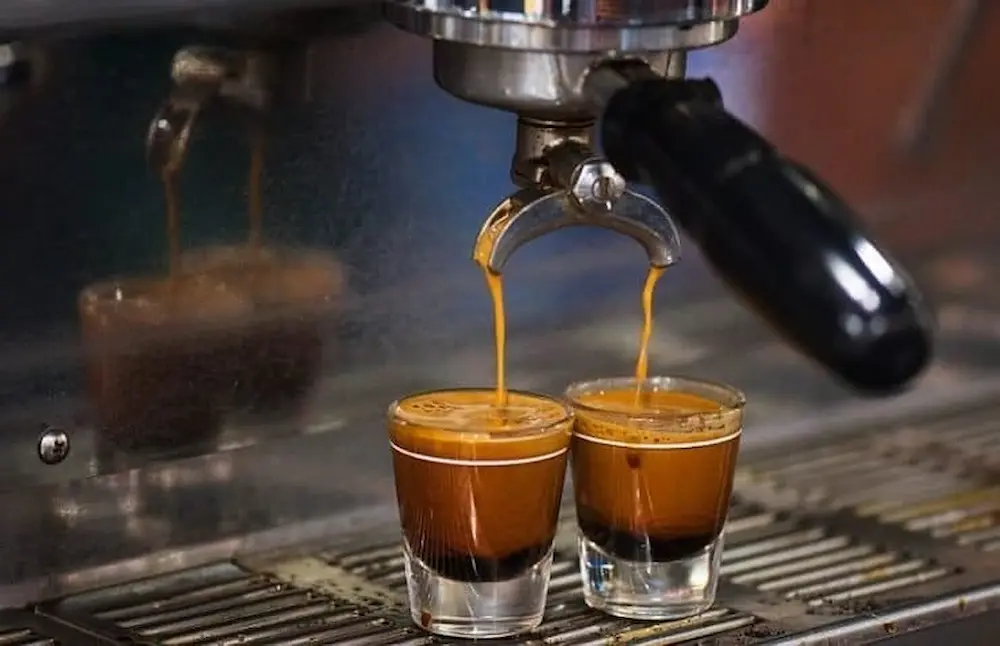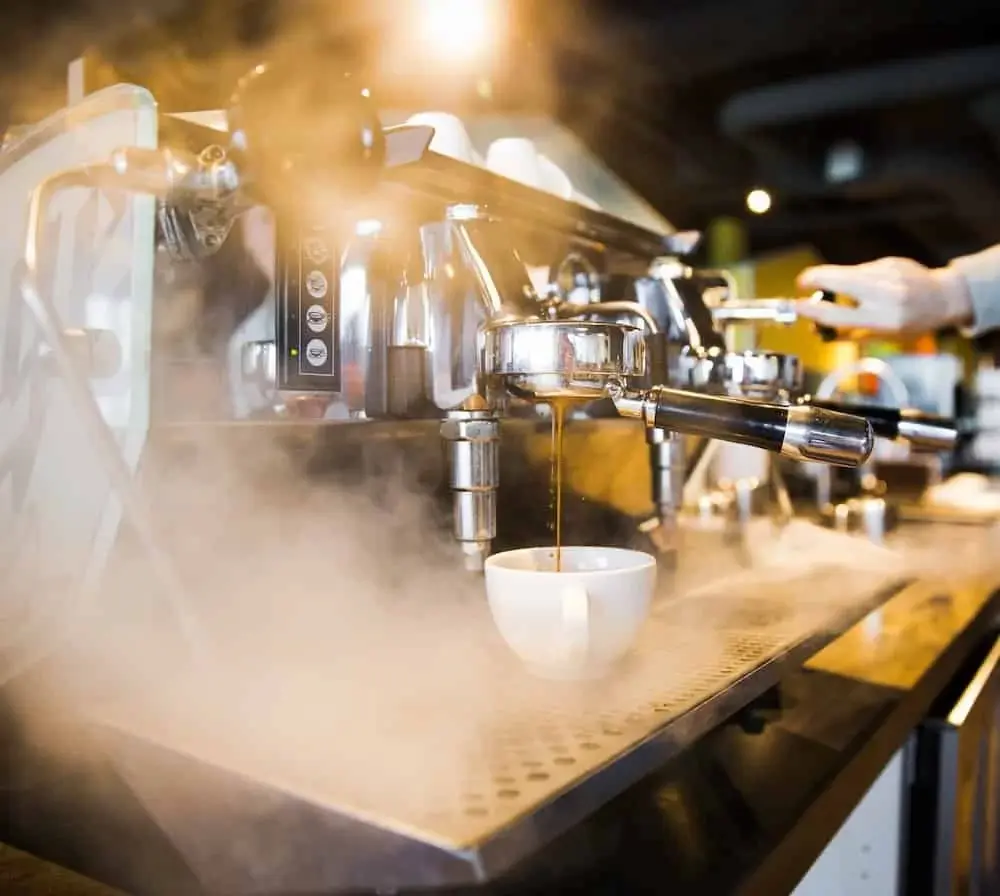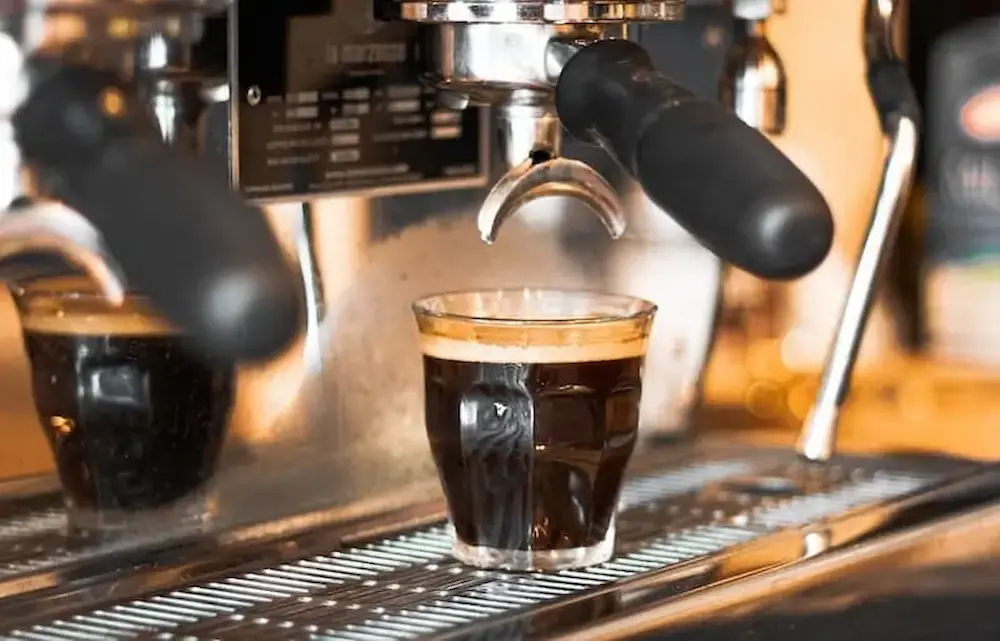It’s possible that you’re thinking of having a double espresso after lunch or in the early evening. Can you sleep later? How long does espresso last, and how long does espresso keep you awake? You might want to read up on this if you’ve ever encountered the negative effects of consuming too much coffee, such as difficulty sleeping or a racing heart.
The average adult should expect the effects of espresso to persist for about 5-6 hours. The length of time that you feel the effects of espresso depends on factors including your age, body size, and caffeine tolerance.
We have the answers to all your espresso questions!
How Long Does Espresso Last?
We’re all aware that espresso is a good source of caffeine. Some people may experience the effects of espresso immediately due to the rapid absorption of caffeine by the human body. Some people may need more time before they experience a surge in vitality and alertness.
Espresso’s full energizing effects don’t kick in for up to an hour after consumption. After around 2 hours, the effects of espresso begin to fade. Caffeine and coffee can leave our bodies quickly, but it can stay in the body for 8 hours or even longer.
If you don’t drink any more caffeine for at least 12 hours, the coffee should be completely out of your system. If you don’t get rid of it, you’ll be exposed to it for a longer period of time.
How Long Does An Espresso Shot Last?
How long the caffeine from an espresso shot lasts in your body?
Caffeine has a half-life of about 5 to 6 hours in the human body. This means that if you consume a shot of espresso, which typically contains about 63 milligrams of caffeine, roughly half of that caffeine will still be in your system after 5 to 6 hours.
However, this can vary depending on individual factors such as your metabolism, age, and body mass.
How Long Does Espresso Stay in Your System?
The caffeine from espresso, like all caffeine, has a half-life of about 5 to 6 hours in the average adult body.
This means that approximately 5 to 6 hours after consuming an espresso, about half of the caffeine will still be present in your system.
However, this can vary depending on several factors, including your metabolism, body mass, age, and overall health.
For example, in pregnant women, the half-life of caffeine can be significantly longer. Certain medications can also interact with caffeine and affect how long it stays in your system.
While the caffeine may take several hours to leave your body, the noticeable effects typically last for a few hours at most, depending on your sensitivity to caffeine. If you’re sensitive to caffeine or consume it infrequently, you may feel effects for longer than someone who regularly consumes caffeine.
Keep in mind that consuming caffeine later in the day can potentially interfere with sleep, even if the initial energy boost has worn off.
How Long Does Espresso Keep You Awake?
Espresso, a potent form of coffee, is renowned for its stimulating effects. But how long does espresso keep you awake?
Dr. David J. Earnest, a sleep expert from Texas A&M Health Science Center, explains, “Caffeine can have a noticeable effect on sleep patterns. It can delay the timing of your body clock, reduce your total sleep time, and affect the quality of sleep.”
The caffeine in espresso is the primary culprit. A standard shot of espresso typically contains about 63 milligrams of caffeine. Depending on various factors like age, weight, and caffeine tolerance, it could take anywhere from 3 to 5 hours for half of that caffeine to be eliminated from the body. This is known as the ‘half-life’ of caffeine.
However, the effects of caffeine can linger for up to 10 hours, especially in individuals sensitive to it. According to Dr. Matthew Walker, a neuroscientist and author of “Why We Sleep,” “Even if you fall asleep, the depth and quality of that sleep can be significantly impaired by caffeine.”
Therefore, while the stimulating effects might vary from person to person, it’s generally advisable to avoid consuming espresso at least 6 hours before bedtime to ensure a good night’s sleep. So, enjoy that shot of espresso, but time it wisely!
How Many Espressos Can You Drink Safely?

You should restrict your espresso intake for optimal health. Depending on the coffee brand, a single espresso that’s one ounce in size will include anywhere from 60 to 185 mg of caffeine. You can have anywhere from two to six espresso shots each day, depending on the strength of the espresso.
Caffeine intake below 400 mg daily is considered safe by the Food and Drug Administration.
Avoid going overboard on the coffee, and do your best to stick to recommended limits. In doing so, you may lessen your risk of experiencing health concerns associated with consuming too much coffee.
Factors Related to The Effect of an Espresso
Most of us drink espresso to get the necessary caffeine and energy for the rest of the day. But if you become addicted, it might become detrimental to your health and well-being.
The way it affects your body depends on factors such as:
- your age
- body mass
- general health
- regular intake
- medications, if you take any with it
- the quantity you consume.
Smokers, for instance, are less susceptible to the stimulatory effects of coffee. Hormonal contraception users, on the other hand, may develop a hypersensitivity to the caffeine in espresso.
Some people’s metabolisms process caffeine very slowly, while others do it rather rapidly. The caffeine in espresso is only somewhat noticeable if you drink it rapidly. Those with a caffeine sensitivity may endure stomach upset, irritability, and even diarrhea.
Consuming even a little bit of this stuff will give you the jitters. However, those who aren’t very sensitive may not even notice the effects after taking much over the recommended maximum amount. They may feel like they aren’t actually ingesting it at all times.
Are You Feeling the Effects of Espresso For Too Long?

Espresso may be dehydrating, so if you fear you’ve had too much, it’s better to wash it down with a big glass of water.
You can feel that you don’t have an appetite or that eating isn’t necessary. Keeping your blood sugar under control and avoiding headaches in this situation requires conscious effort during meals. The greatest strategy for reducing jitters is to consume espresso only with meals.
Caffeinated drinks should not be consumed before eating. Ulcers, weakness, anxiety, osteoporosis, and disorientation are some of the long-term consequences that may occur.
Exercising can improve your mood and put the extra energy you’ll have once the coffee wears off to good use.
Can Espresso Keep You Awake?
There’s no doubt that it has the ability to keep you awake. Even if you feel like you could use some additional pep, it’s best to limit how much espresso you drink.
Drinking espresso first thing in the morning is generally safe. Positive emotions and mental alertness will persist all day long. Don’t drink more than is safe, or it might affect your health and well-being.
It’s a good idea to take one every so often to help you feel better, and some people even take them before bed. If you want to get some serious work done late at night, you can have it. But you shouldn’t make it a routine part of your nightly routine to consume it.
The Bottom Line: How Long Does Espresso Last?
So how long does an espresso shot last? The effects of that first cup of espresso won’t be felt for another half hour or so, but they’ll keep you going strong for hours. After five hours, your body has absorbed roughly half of the caffeine, but it still remains, albeit in dwindling proportions. How long that lasts depends on the individual’s sensitivity to caffeine and metabolic rate.
RELATED READS:
- What Does Espresso Taste Like?
- Is Blonde Espresso Stronger Than Regular Espresso?
- Is Blonde Roast Stronger Than Dark Roast?
Contents
- 1 How Long Does Espresso Last?
- 2 How Long Does An Espresso Shot Last?
- 3 How Long Does Espresso Stay in Your System?
- 4 How Long Does Espresso Keep You Awake?
- 5 How Many Espressos Can You Drink Safely?
- 6 Factors Related to The Effect of an Espresso
- 7 Are You Feeling the Effects of Espresso For Too Long?
- 8 Can Espresso Keep You Awake?
- 9 The Bottom Line: How Long Does Espresso Last?

